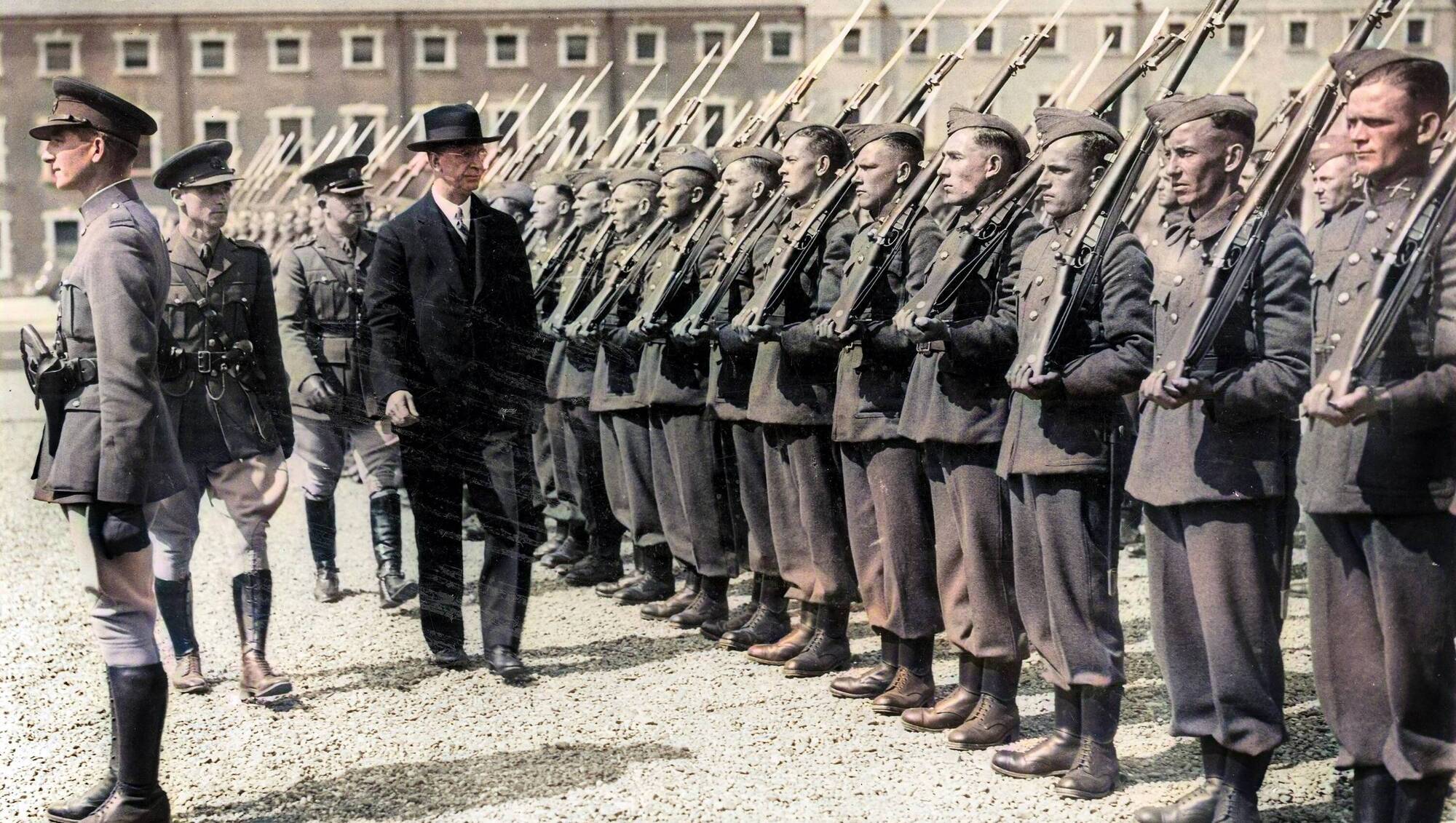Top Stories
Éamon de Valera’s Legacy Revisited: A Nation Reflects Urgently

UPDATE: As Ireland marks the anniversary of Éamon de Valera’s death on August 29, 1975, the nation reflects on his complex legacy. De Valera, who passed away at the age of 92 in Linden House nursing home, Blackrock, remains a divisive figure in Irish history. His impact continues to resonate, prompting urgent discussions about the future of Ireland’s political identity.
Des O’Malley, a former TD, stated, “The nation now mourns the death of one of its greatest sons,” emphasizing de Valera’s stature among global leaders of his time. His political career spanned key roles, including 16 years as Taoiseach and 14 years as President, shaping the Ireland known as “Dev’s Ireland.”
The late biographer Frank Pakenham described de Valera’s contribution to Irish freedom as “unrivalled,” a sentiment echoed in various tributes and editorials. The Belfast Telegraph noted, “Whatever else may be said about Éamon de Valera, his personal contribution to the making of today’s Ireland can hardly be underestimated.” His political journey was marked by significant events, including his role in the 1916 Rising and his subsequent leadership during turbulent times.
The anniversary has reignited debates about de Valera’s controversial decisions, particularly his rejection of the Treaty that led to the Civil War. John A Costello, his political opponent, acknowledged de Valera’s commitment to democracy, stating, “He adopted completely all the forms of democracy.” Yet, his inflammatory rhetoric during the Civil War inflamed violence, raising questions about his legacy.
De Valera’s birth in New York in 1883, his upbringing in Bruree, Co Limerick, and his decision to join the rebellion in 1916 positioned him as a pivotal figure in Irish nationalism. His early experiences shaped his beliefs, but what if his fate had been different? Author Colum Kenny posits, “Had de Valera been executed after the Easter Rising, who would have remembered him?”
De Valera’s political ascent was marked by luck and strategic choices, including his absence from the Treaty negotiations in 1921. His decision to skip the talks has been a point of contention, with many historians arguing it led to greater bloodshed during the Civil War. The rhetoric he used at the time was highly charged, warning that achieving a republic would require “wading through Irish blood.”
As the country reflects on de Valera’s actions, many question the motivations behind his political decisions. Was it ambition, ideology, or a genuine belief in the cause? His time in prison during the Civil War provided a period of reflection that arguably transformed him into a more astute politician upon his release.
In 1932, de Valera was elected Taoiseach, and his vision for Ireland was expressed in a famous speech on St. Patrick’s Day in 1943. He envisioned an Ireland characterized by “cosy homesteads” and spiritual values, yet critics point to the contradictions between his ideals and the reality of governance during his tenure.
Despite his numerous contradictions, including his handling of the IRA and the Northern question, de Valera is credited with maintaining democracy in a turbulent era. His decision to remain neutral during World War II is viewed by some as a testament to his statesmanship.
The impact of de Valera’s policies on Irish society continues to be scrutinized, especially in light of Ireland’s evolving economy and social landscape. As discussions surrounding his legacy intensify, the question remains: can de Valera’s contributions to Irish identity be reconciled with the darker aspects of his tenure?
As the nation remembers Éamon de Valera today, his legacy prompts urgent conversations about leadership, democracy, and the future of Ireland. The reflections on his life serve as a critical reminder of the complexities of political history and its lasting effects on society.
For those seeking to delve deeper into Ireland’s rich history, explore our extensive history collections available online.
-

 Top Stories3 months ago
Top Stories3 months agoTributes Surge for 9-Year-Old Leon Briody After Cancer Battle
-

 Entertainment4 months ago
Entertainment4 months agoAimee Osbourne Joins Family for Emotional Tribute to Ozzy
-

 Politics4 months ago
Politics4 months agoDanny Healy-Rae Considers Complaint After Altercation with Garda
-

 Top Stories4 months ago
Top Stories4 months agoIreland Enjoys Summer Heat as Hurricane Erin Approaches Atlantic
-

 World5 months ago
World5 months agoHawaii Commemorates 80 Years Since Hiroshima Bombing with Ceremony
-

 Top Stories3 months ago
Top Stories3 months agoNewcastle West Woman Patricia Foley Found Safe After Urgent Search
-

 Top Stories5 months ago
Top Stories5 months agoFianna Fáil TDs Urgently Consider Maire Geoghegan-Quinn for Presidency
-

 World5 months ago
World5 months agoCouple Convicted of Murdering Two-Year-Old Grandson in Wales
-

 World5 months ago
World5 months agoGaza Aid Distribution Tragedy: 20 Killed Amid Ongoing Violence
-

 World5 months ago
World5 months agoAristocrat Constance Marten and Partner Convicted of Infant Murder
-

 Top Stories4 months ago
Top Stories4 months agoClimbing Errigal: A Must-Do Summer Adventure in Donegal
-

 Top Stories4 months ago
Top Stories4 months agoHike Donegal’s Errigal Mountain NOW for Unforgettable Summer Views









